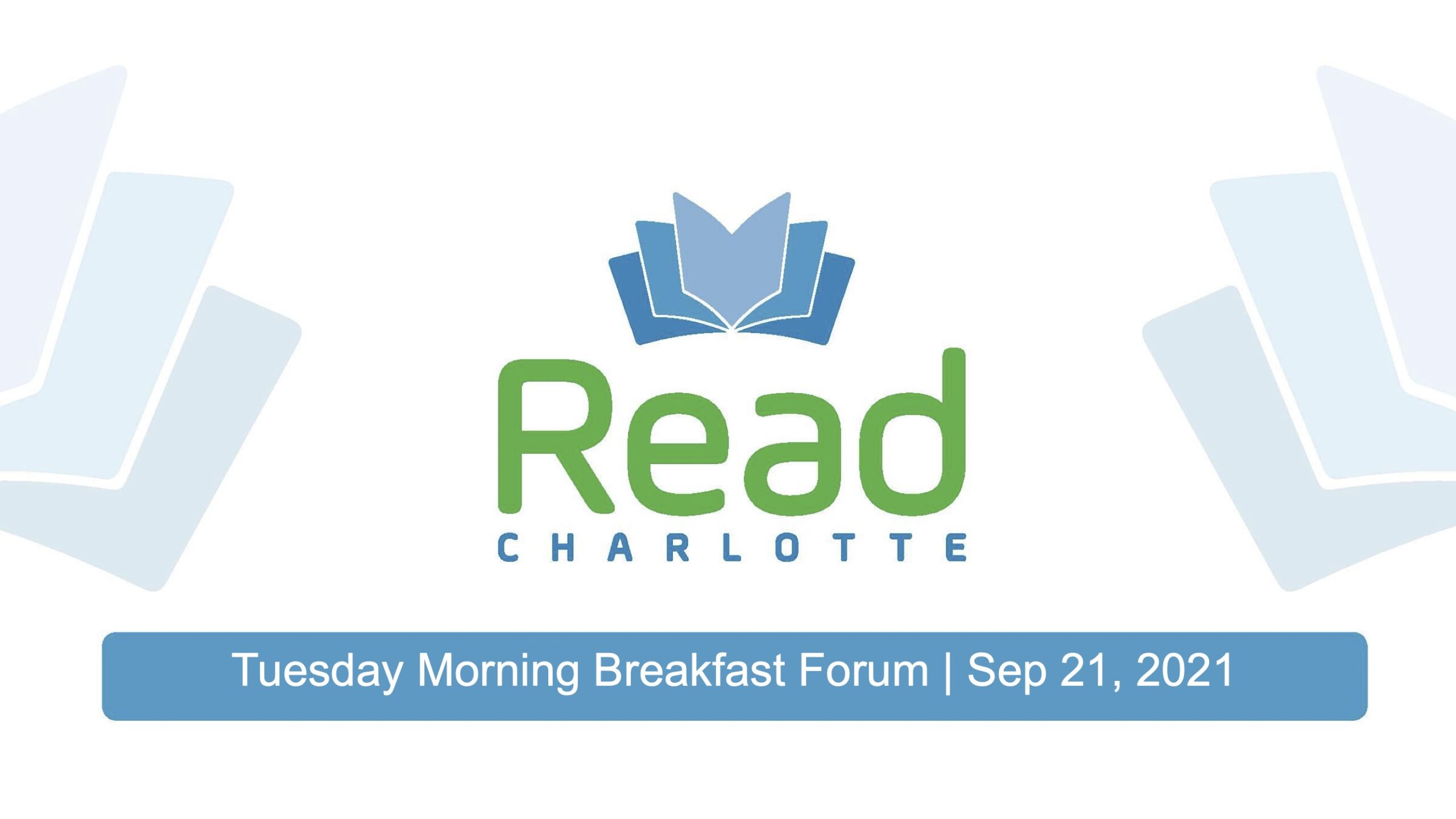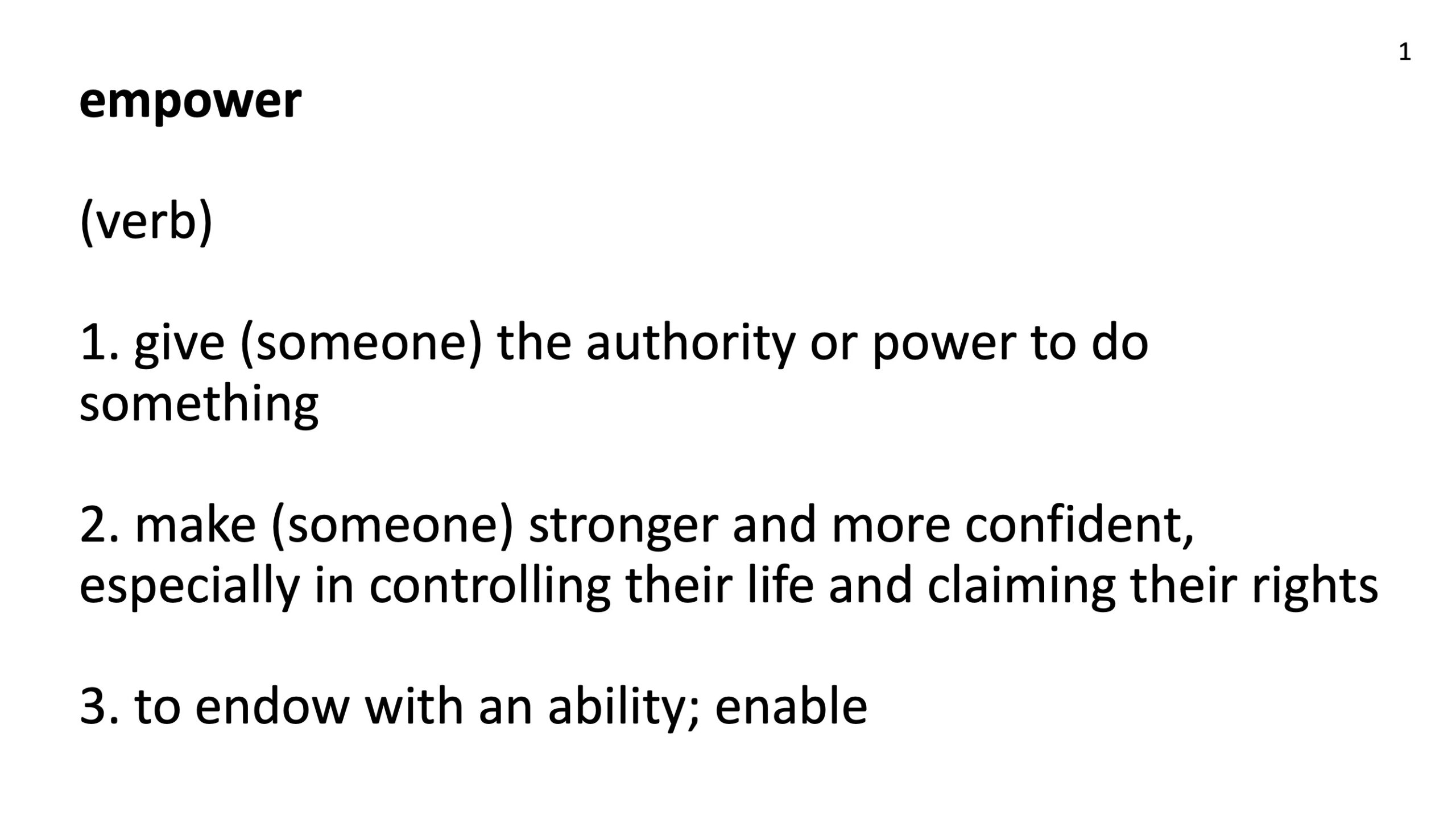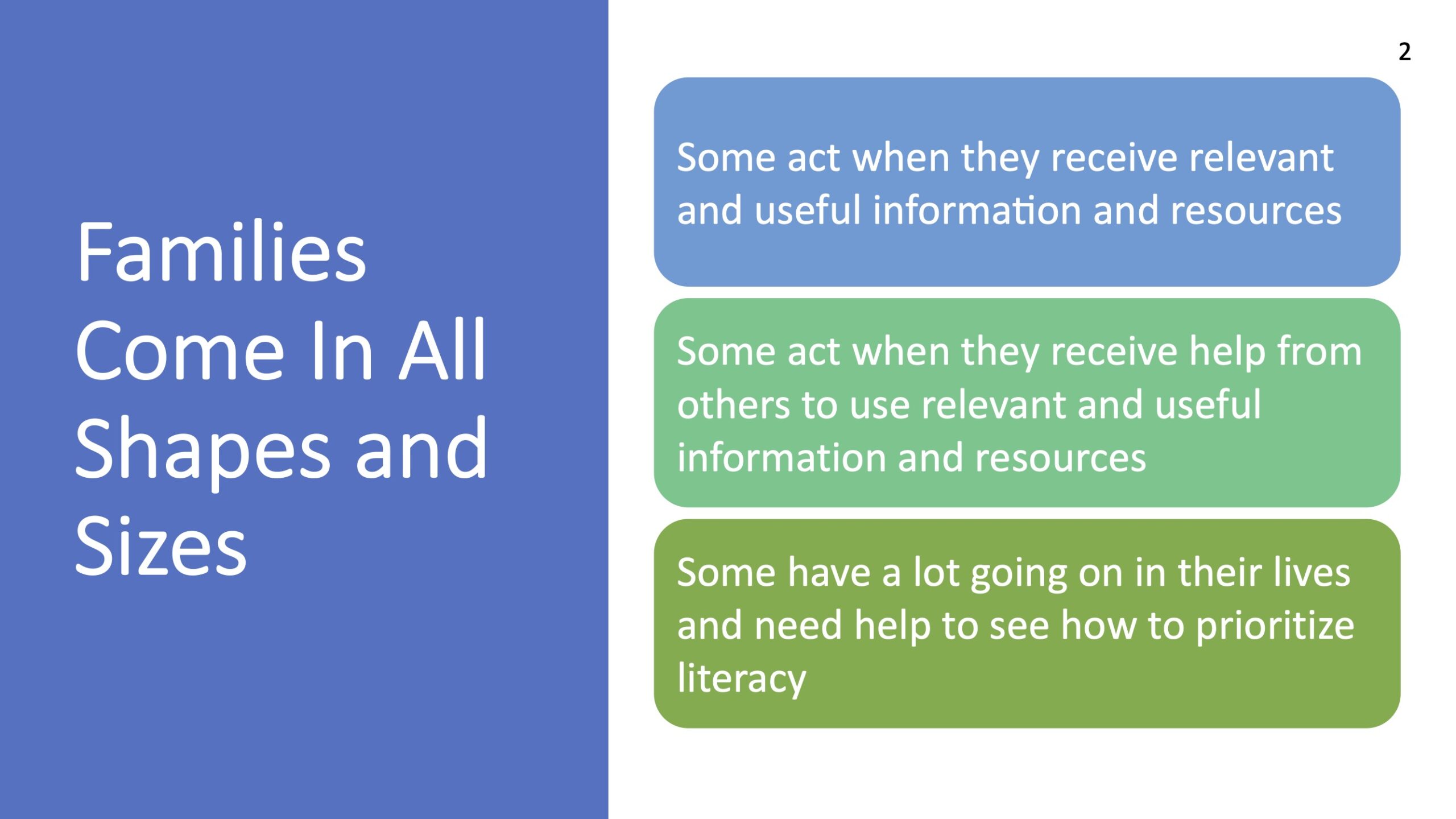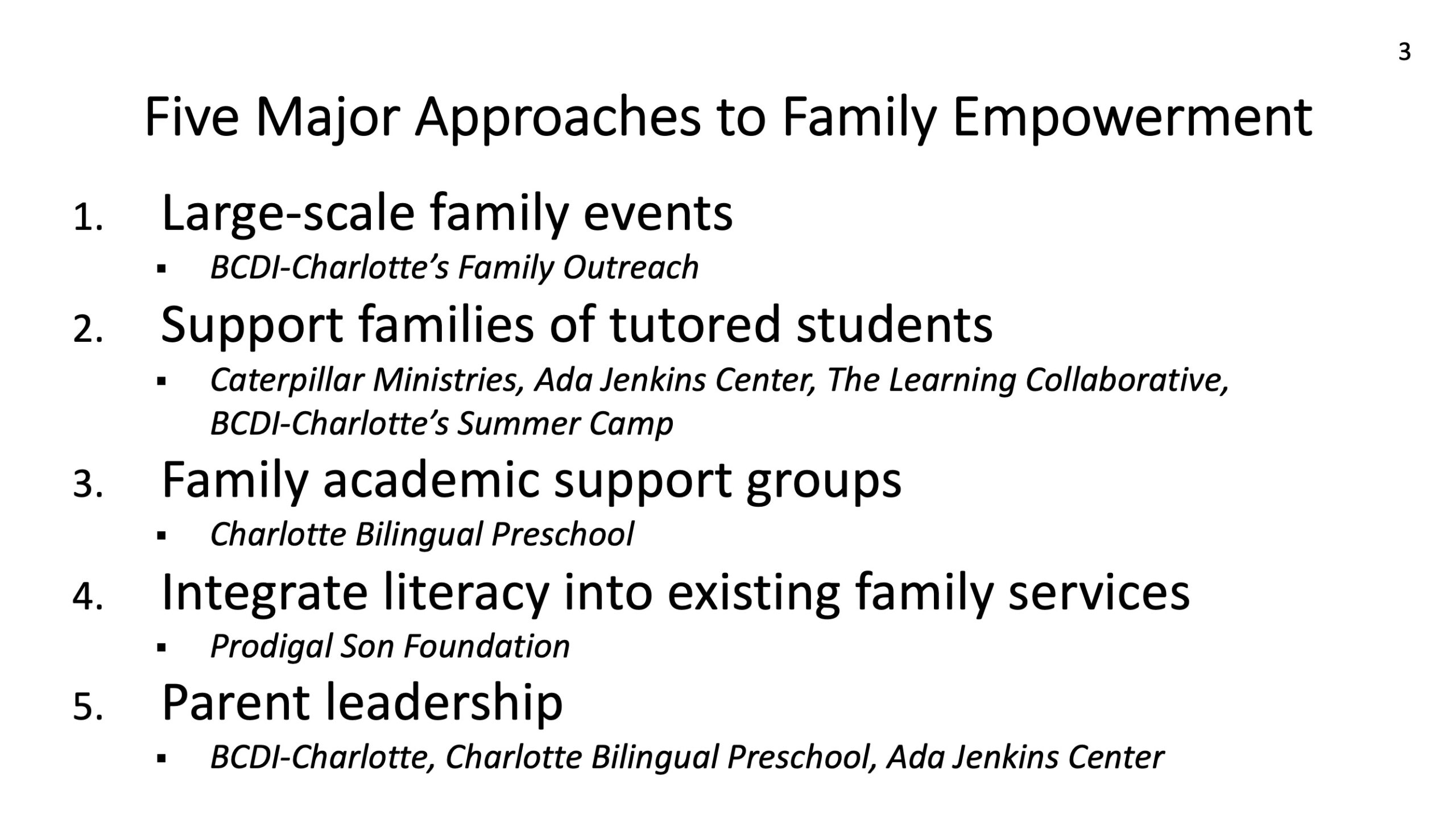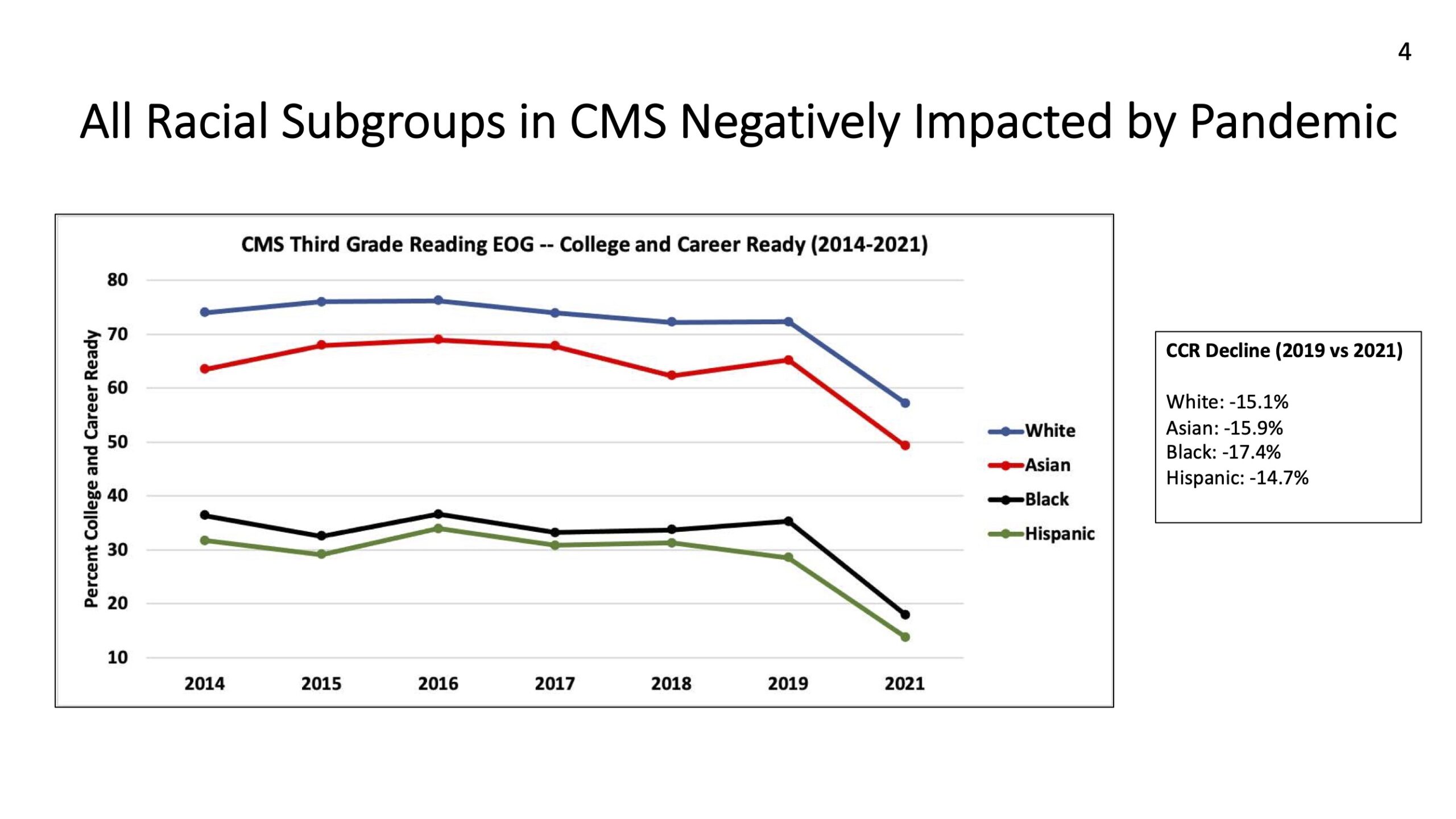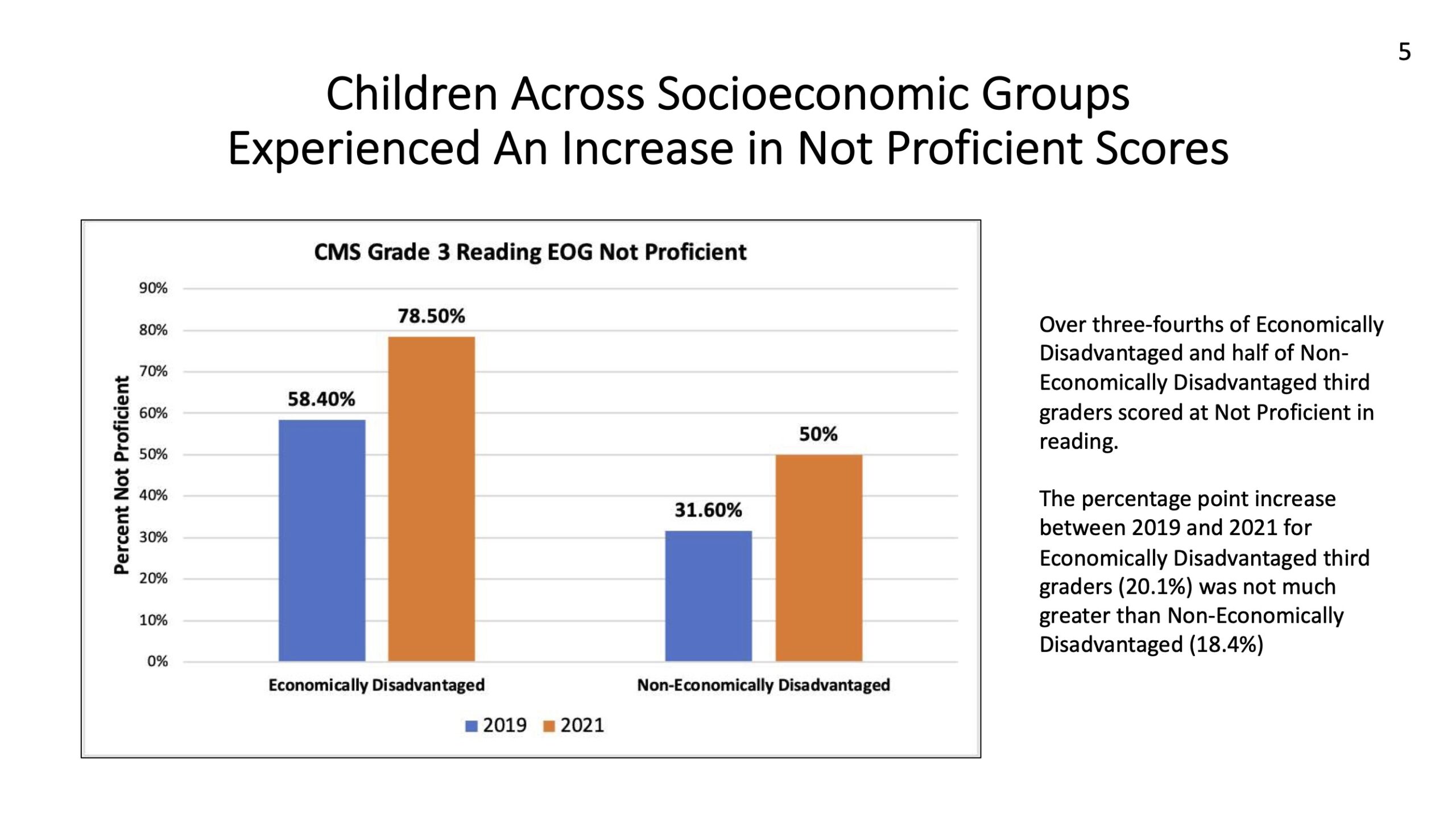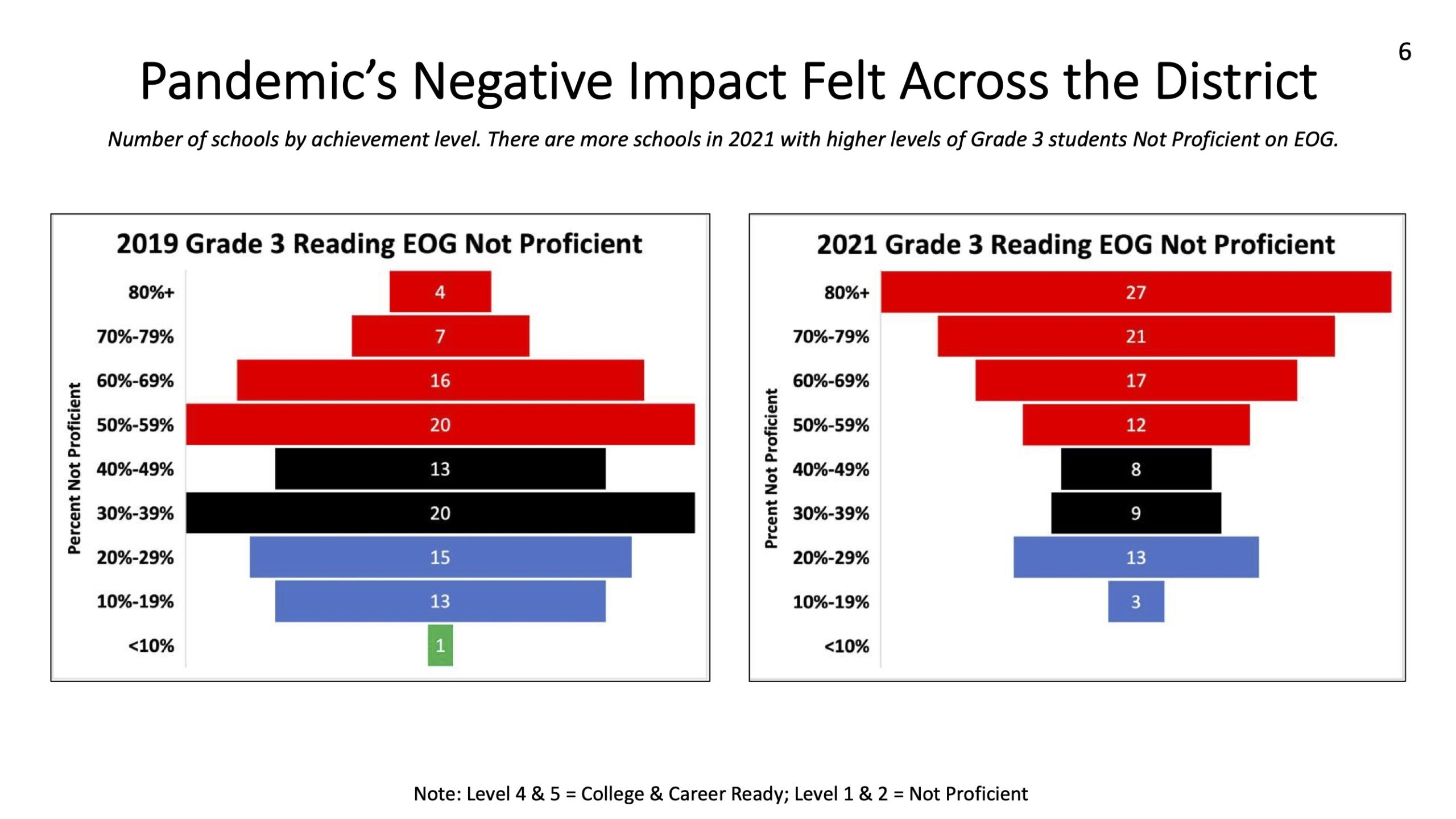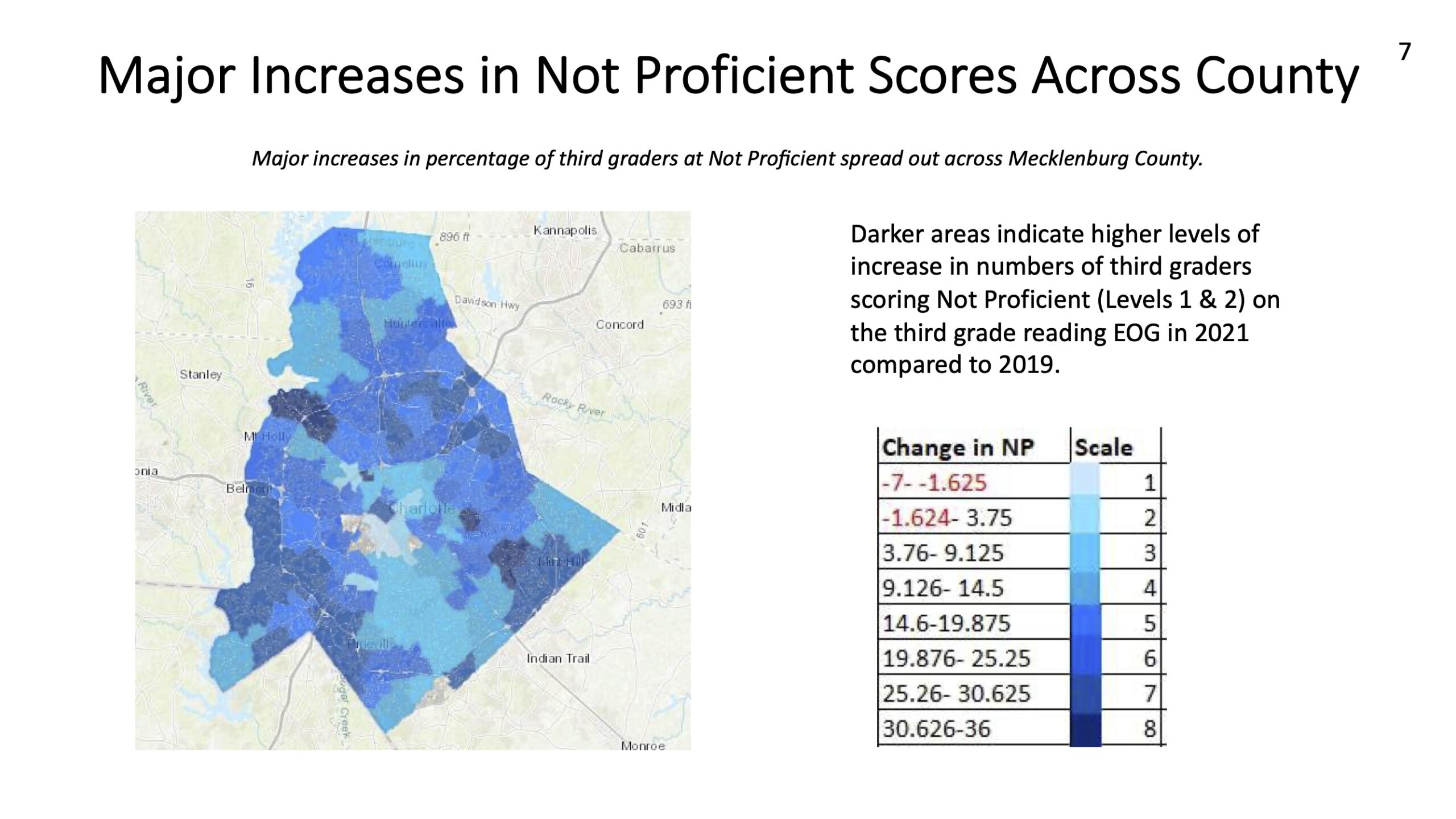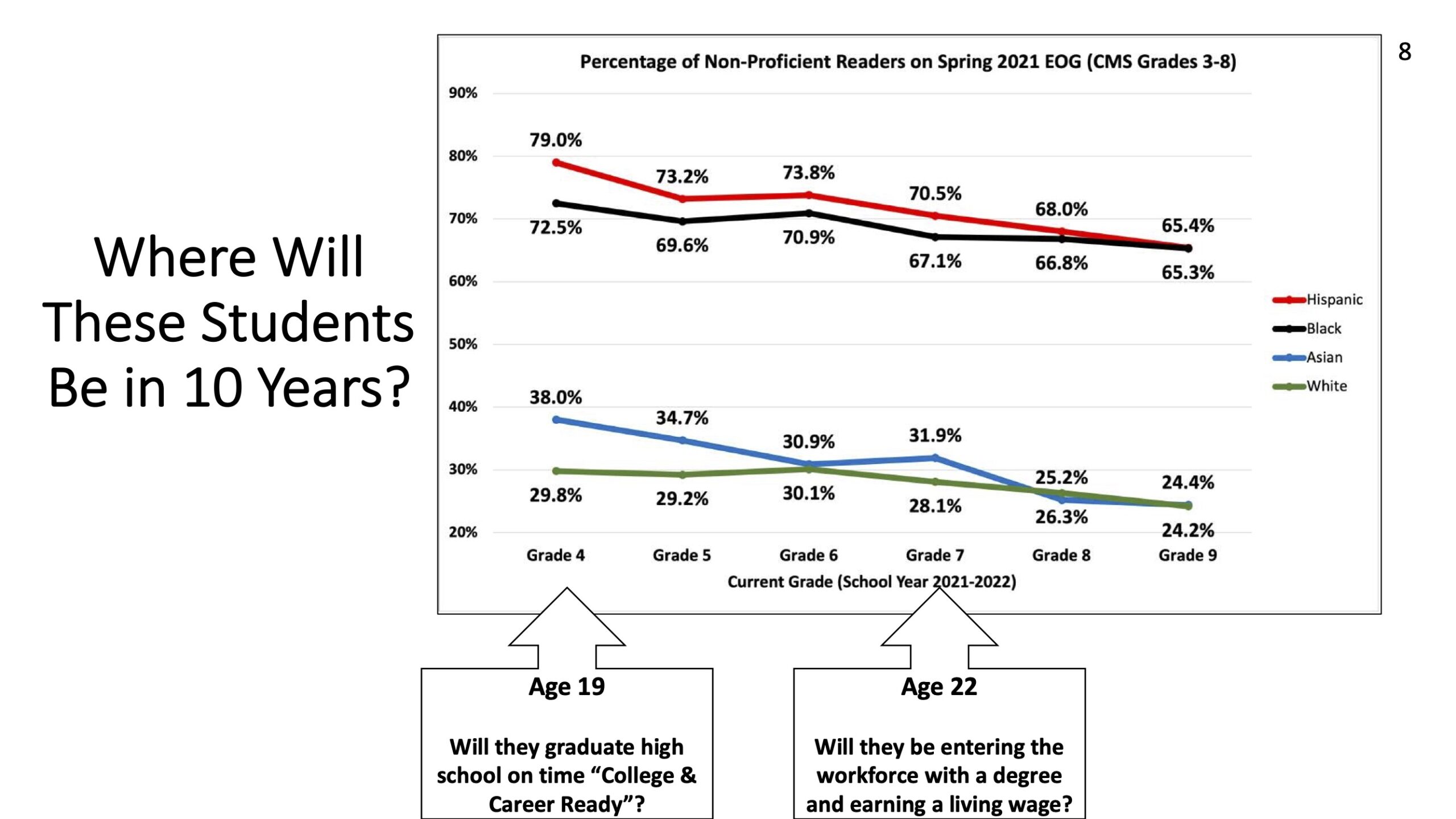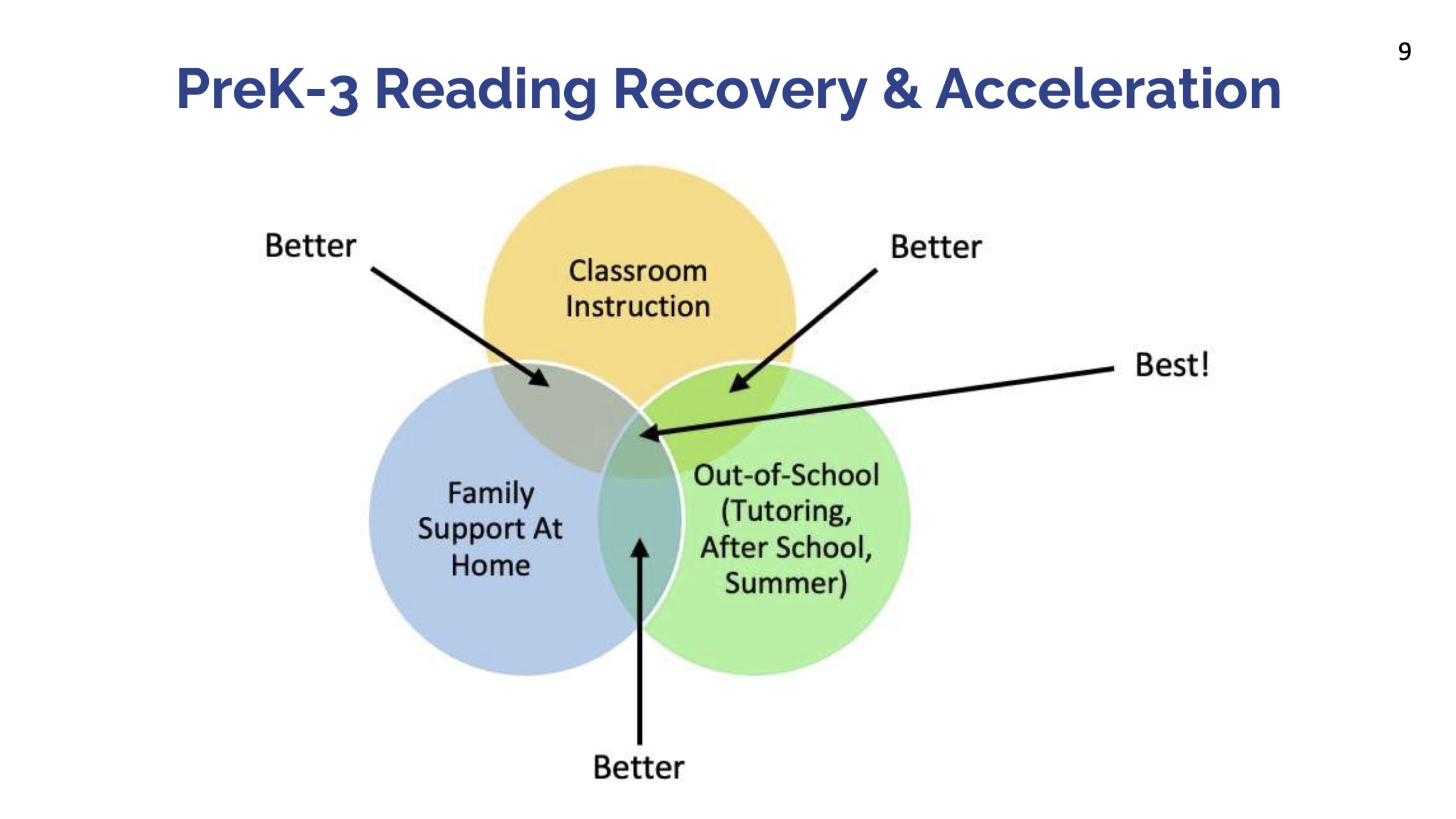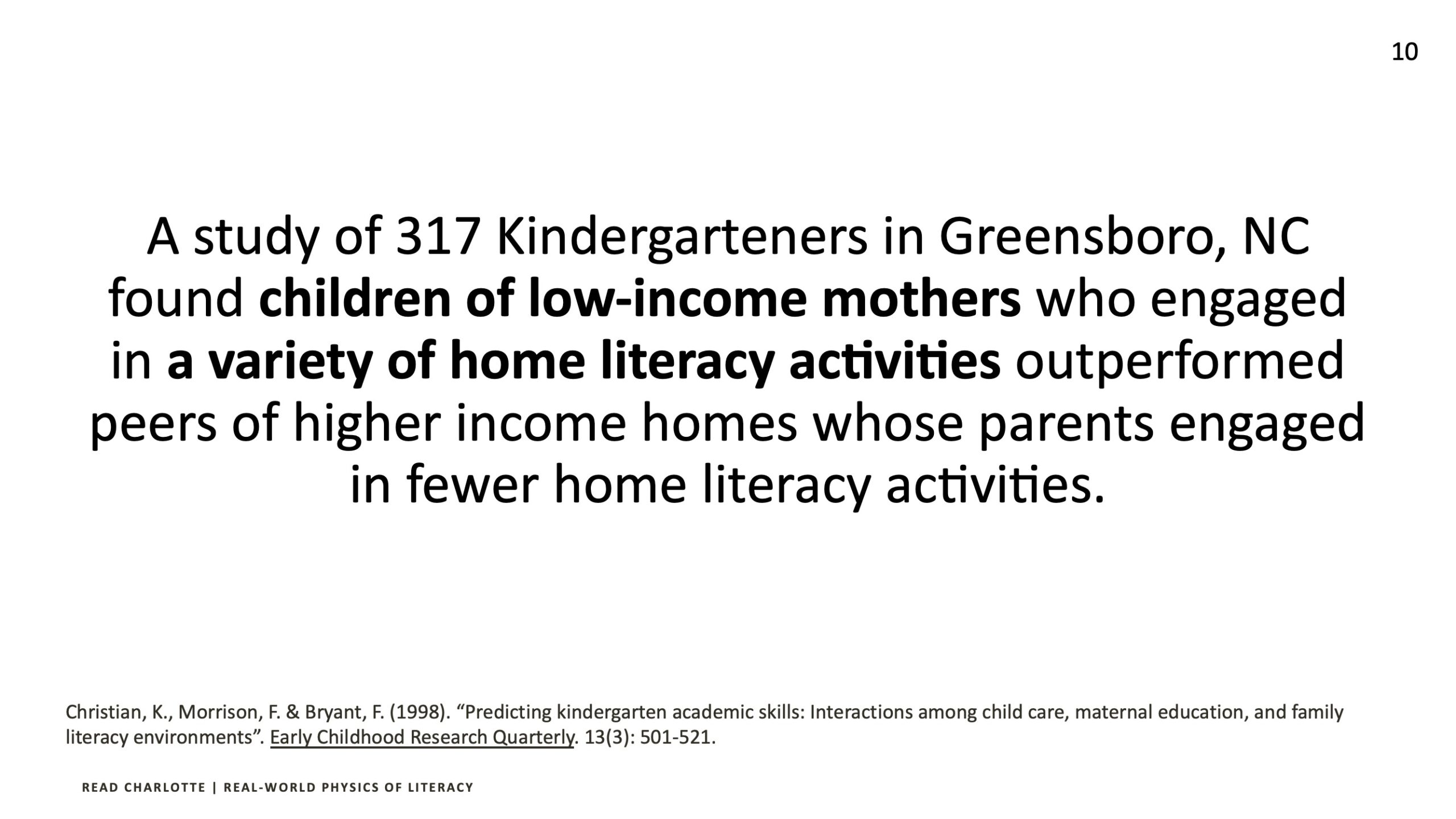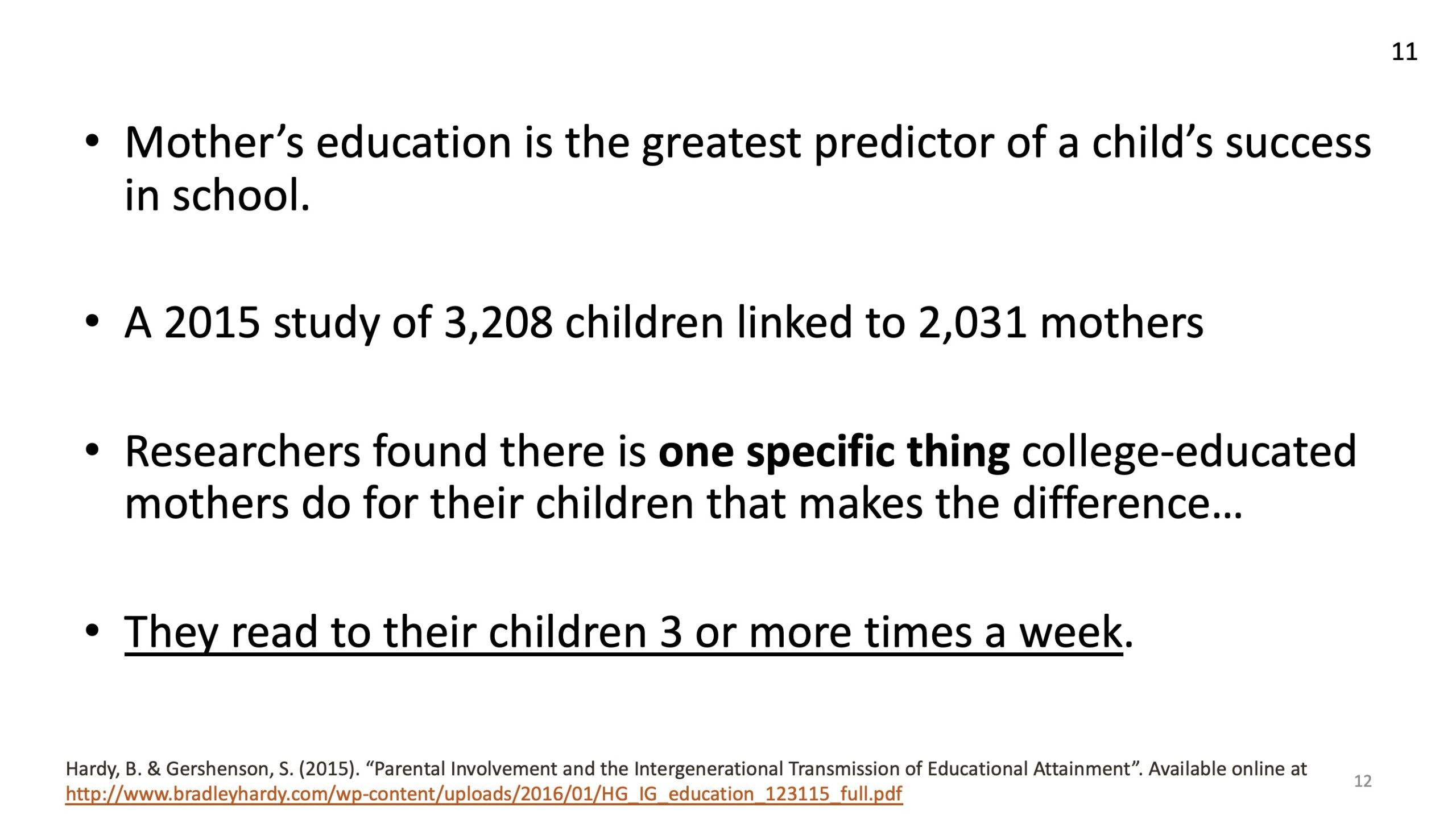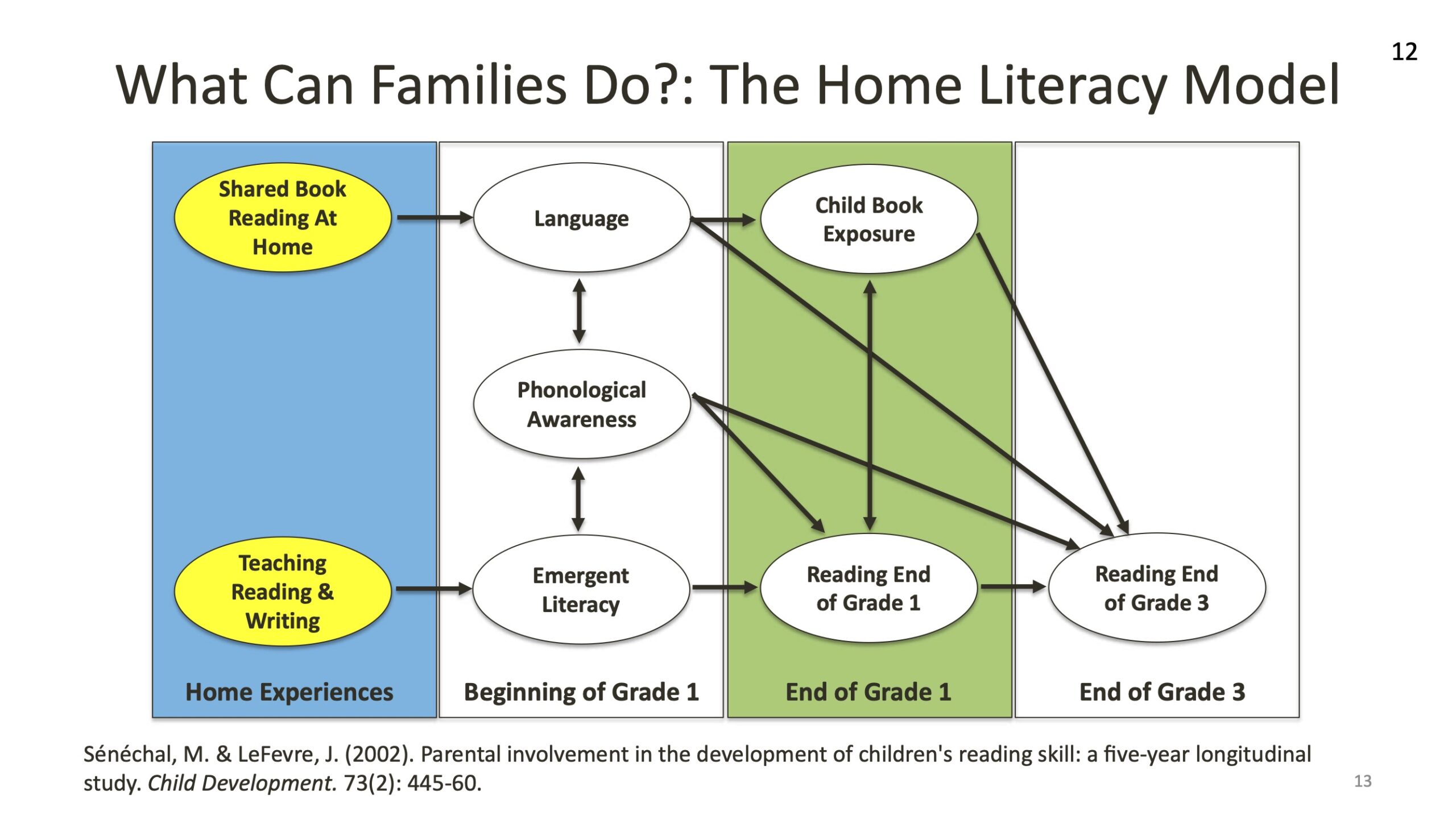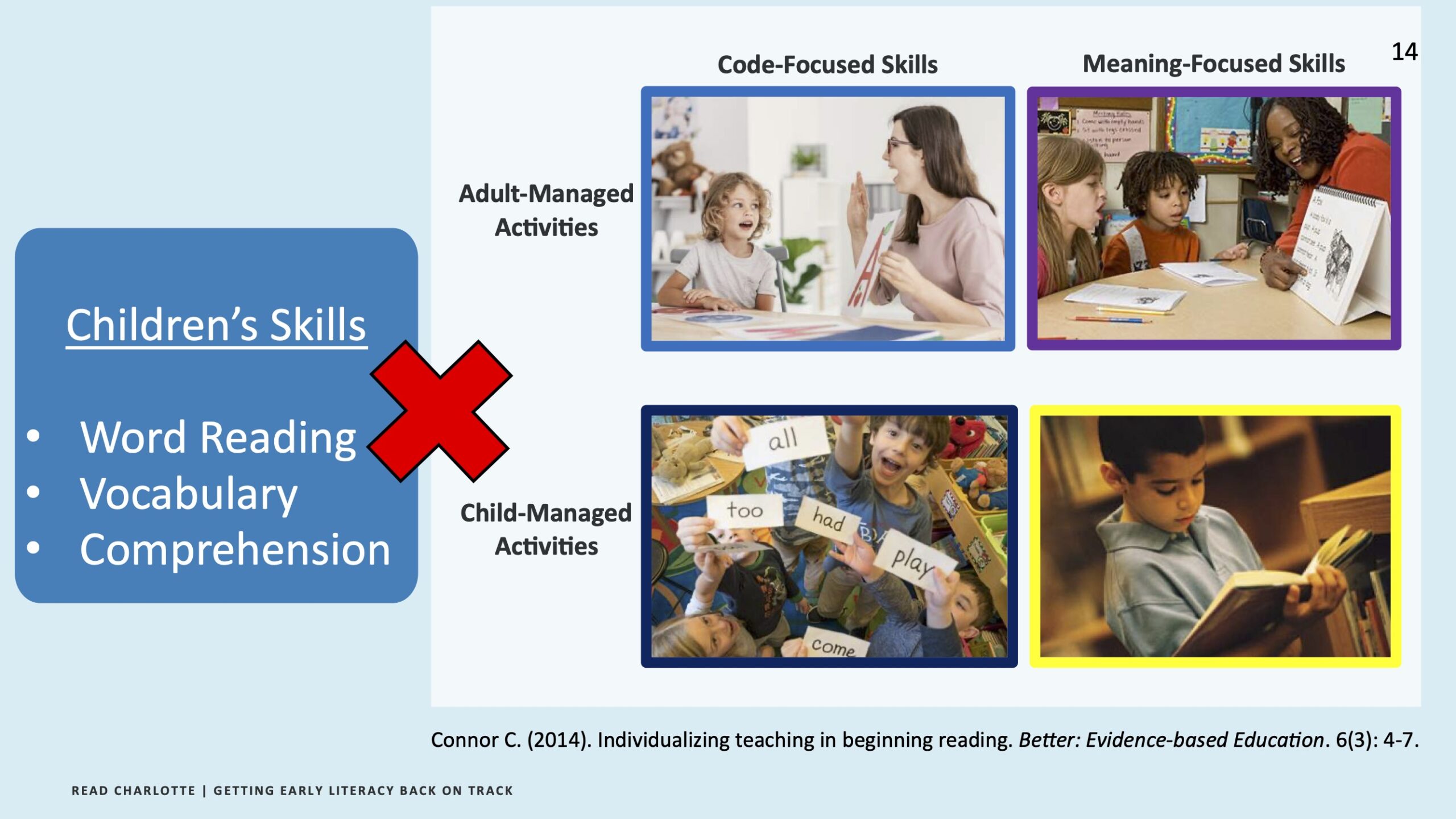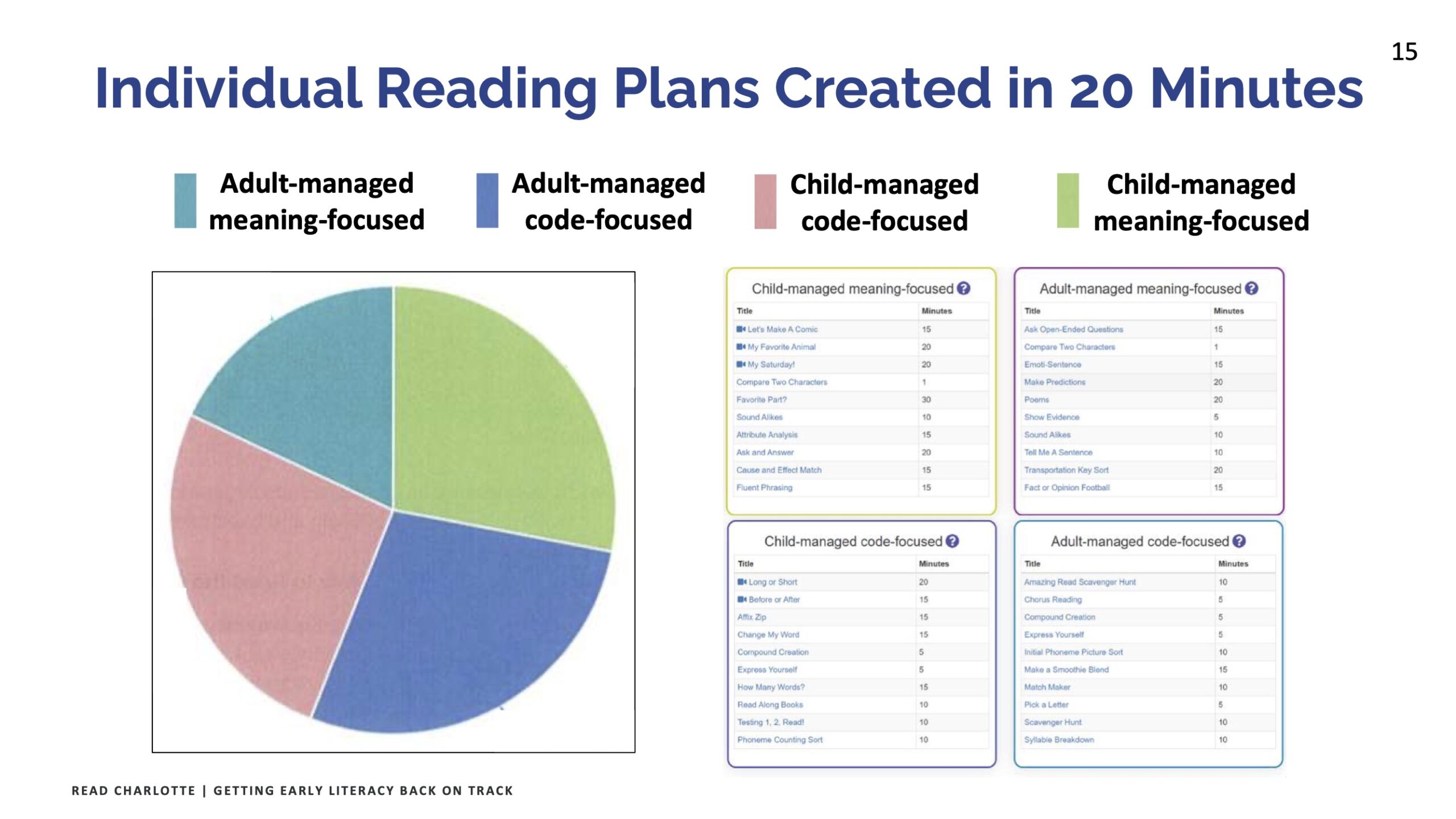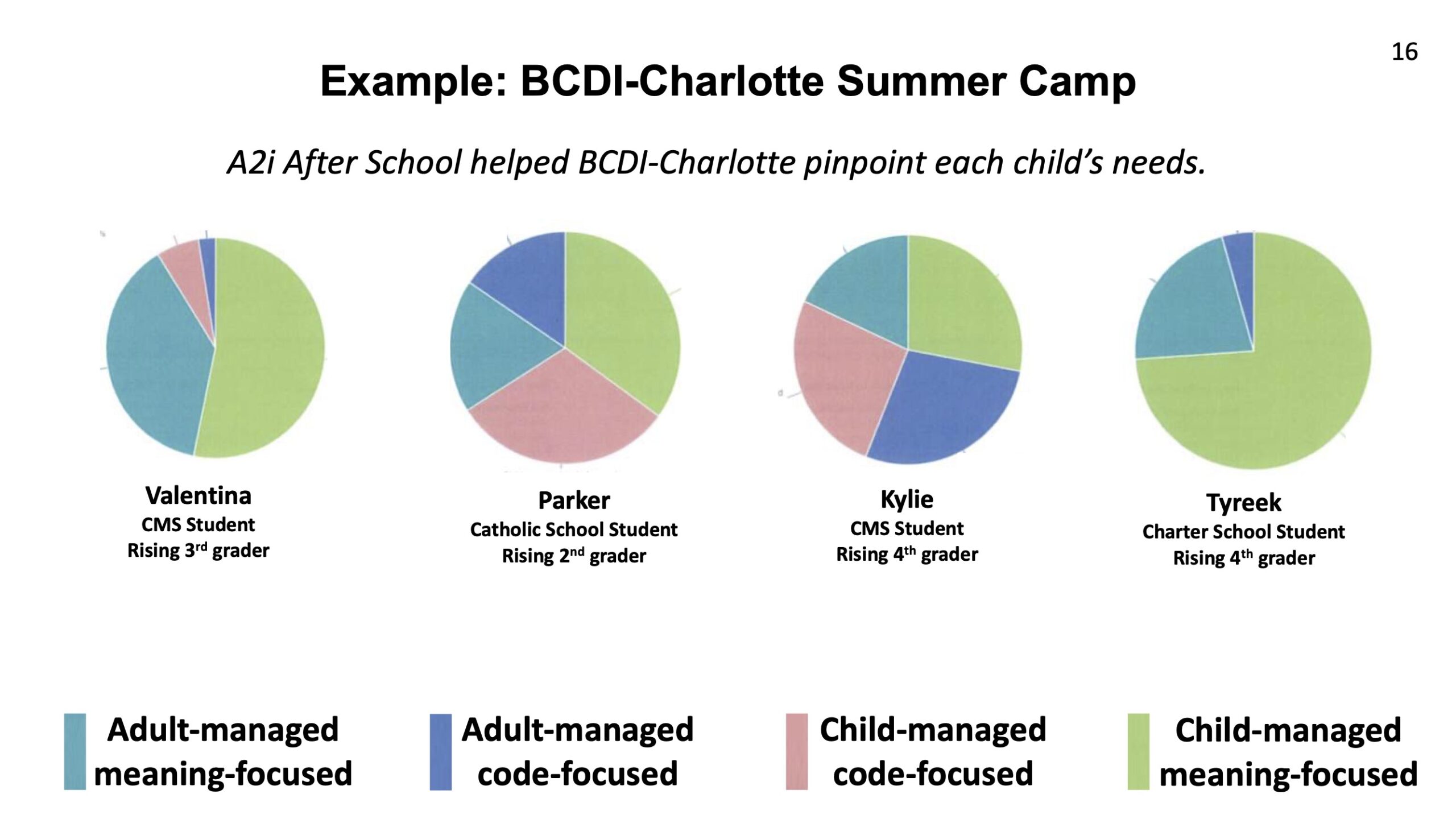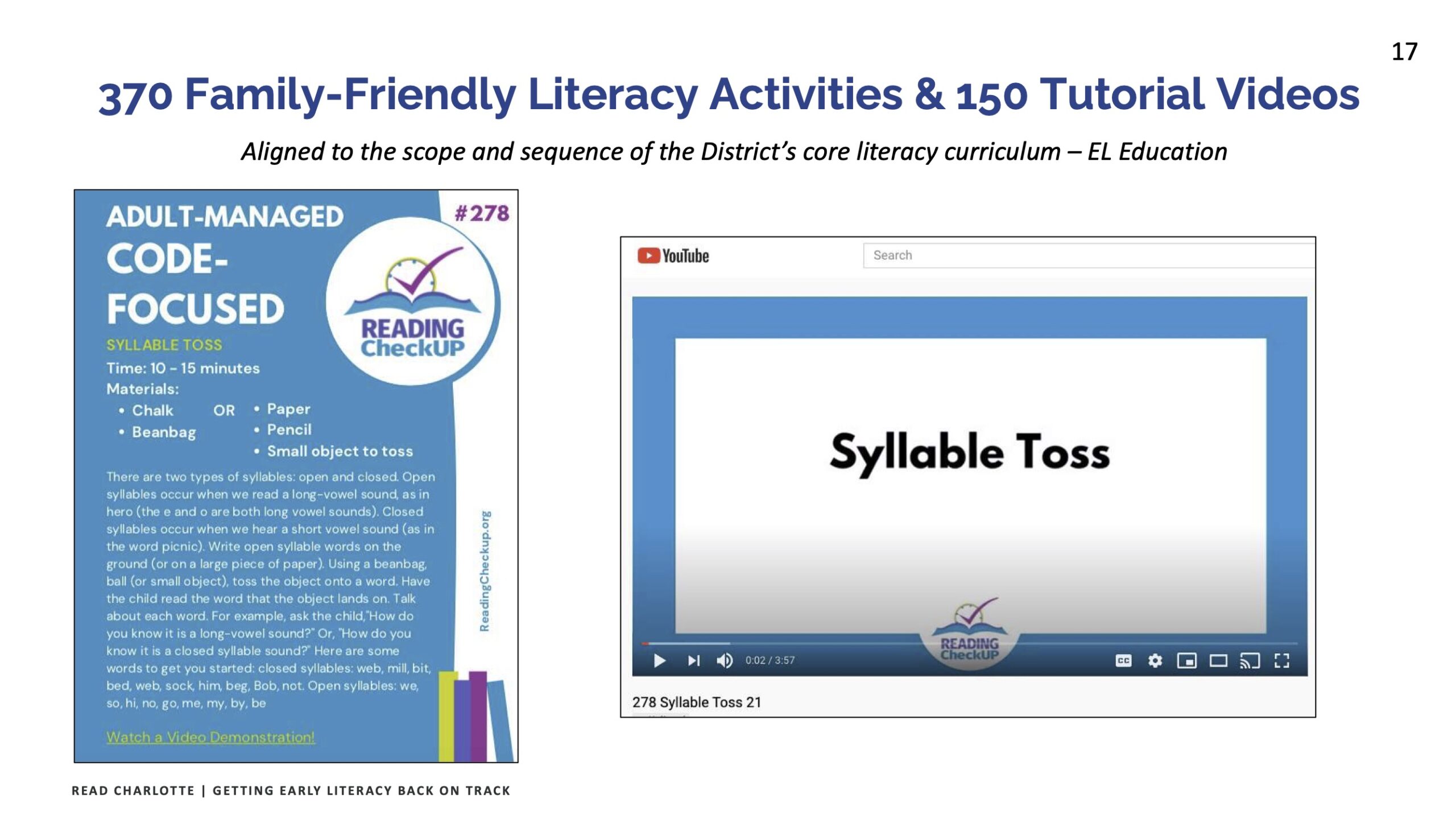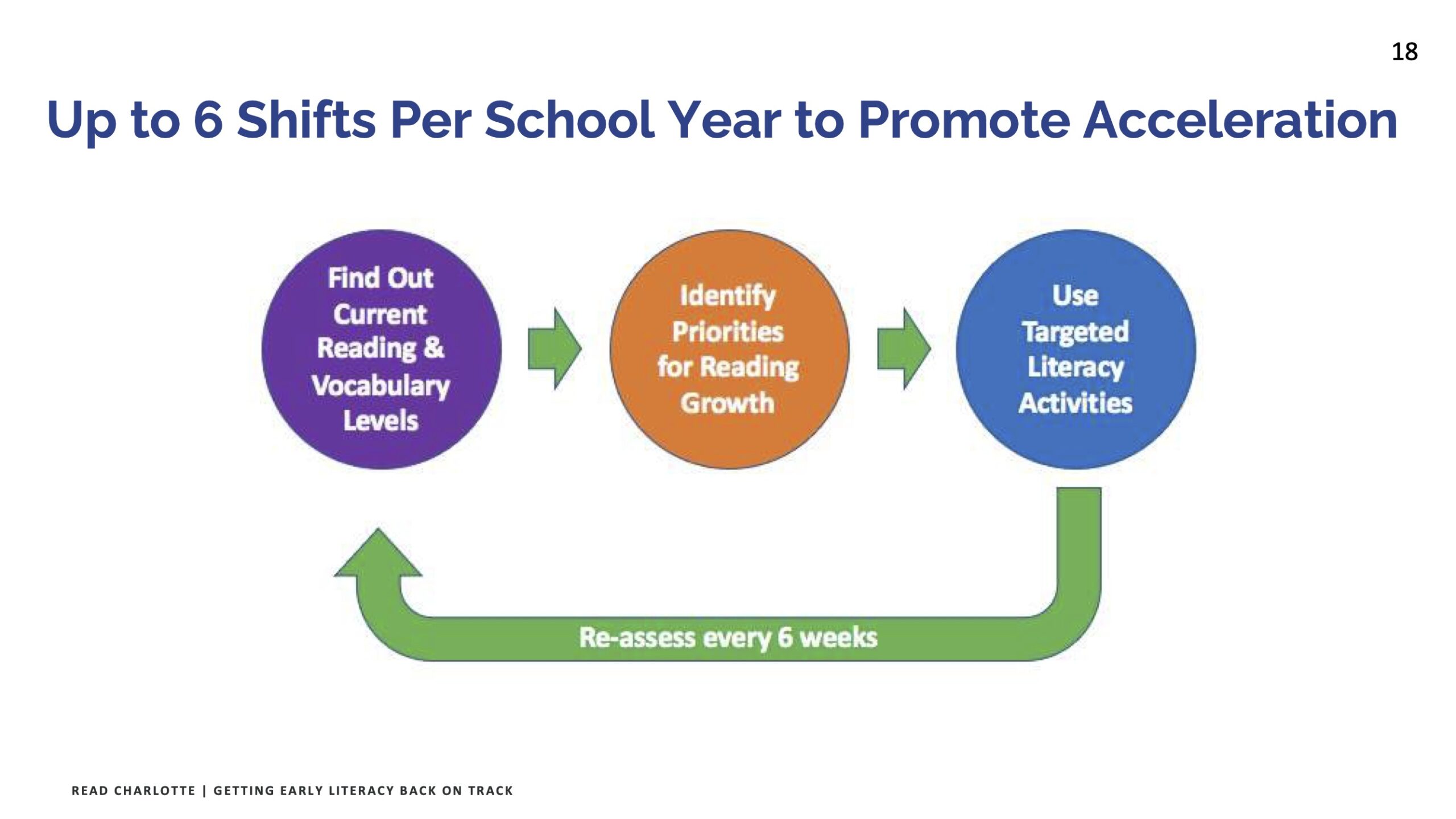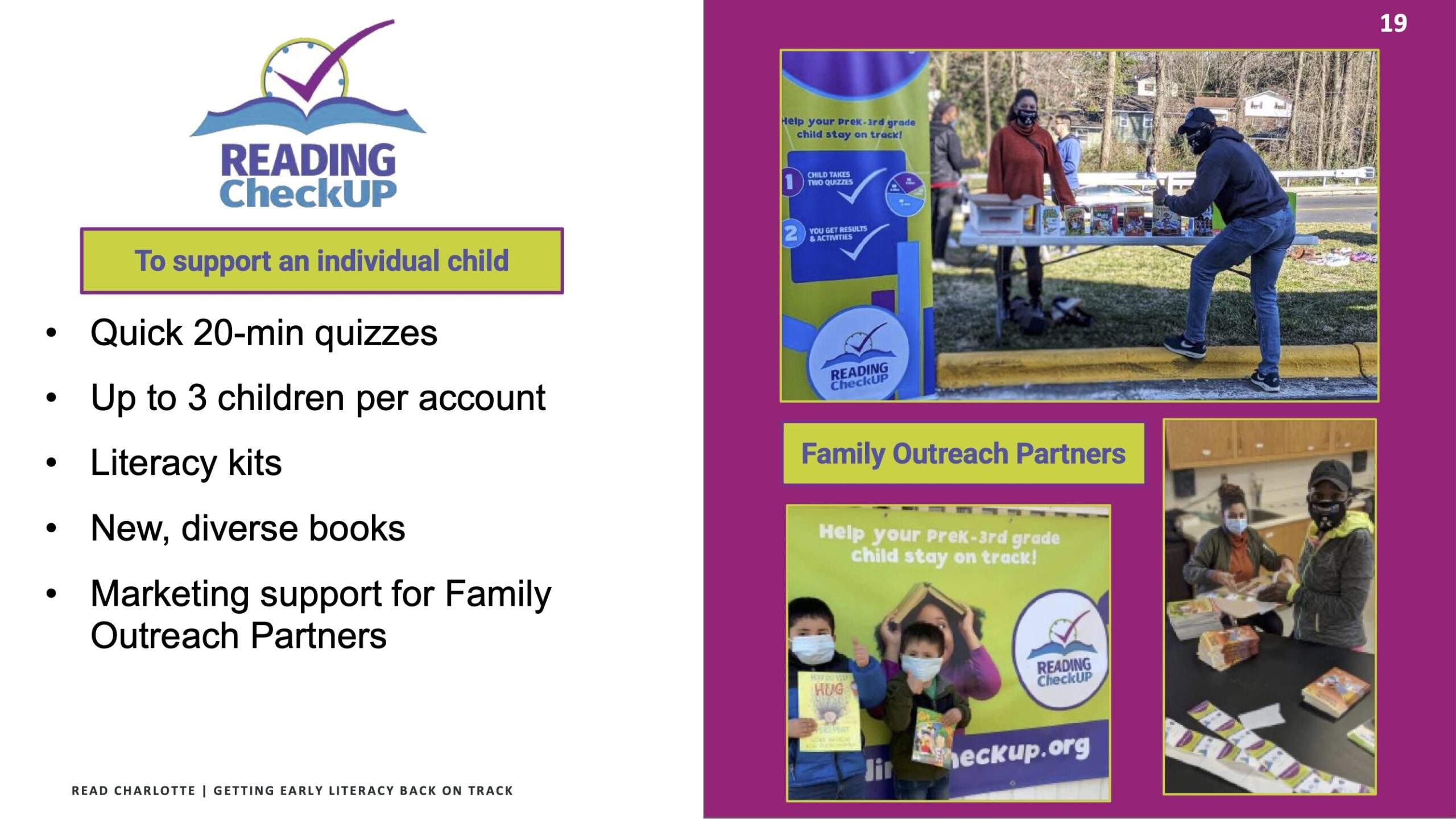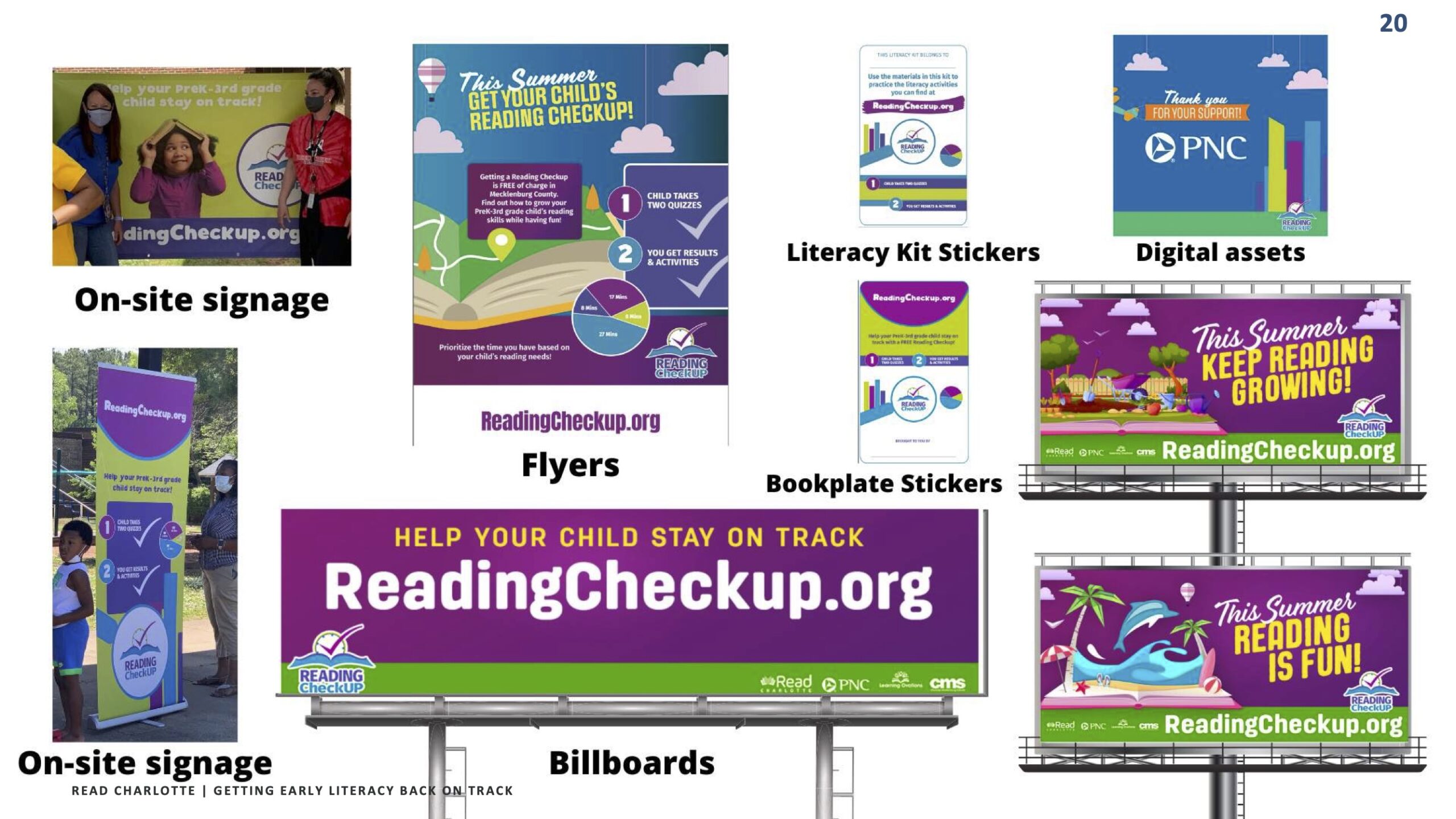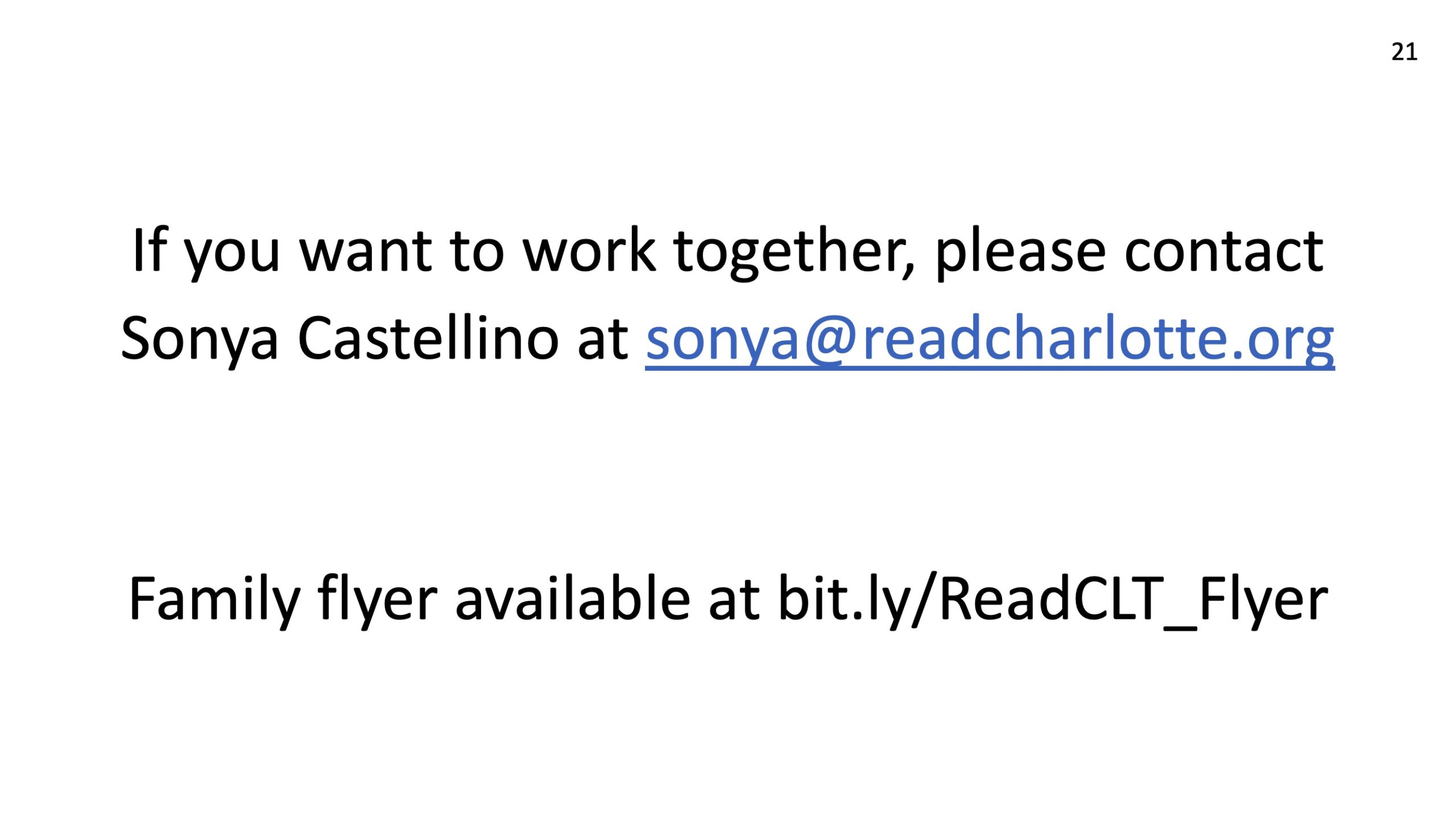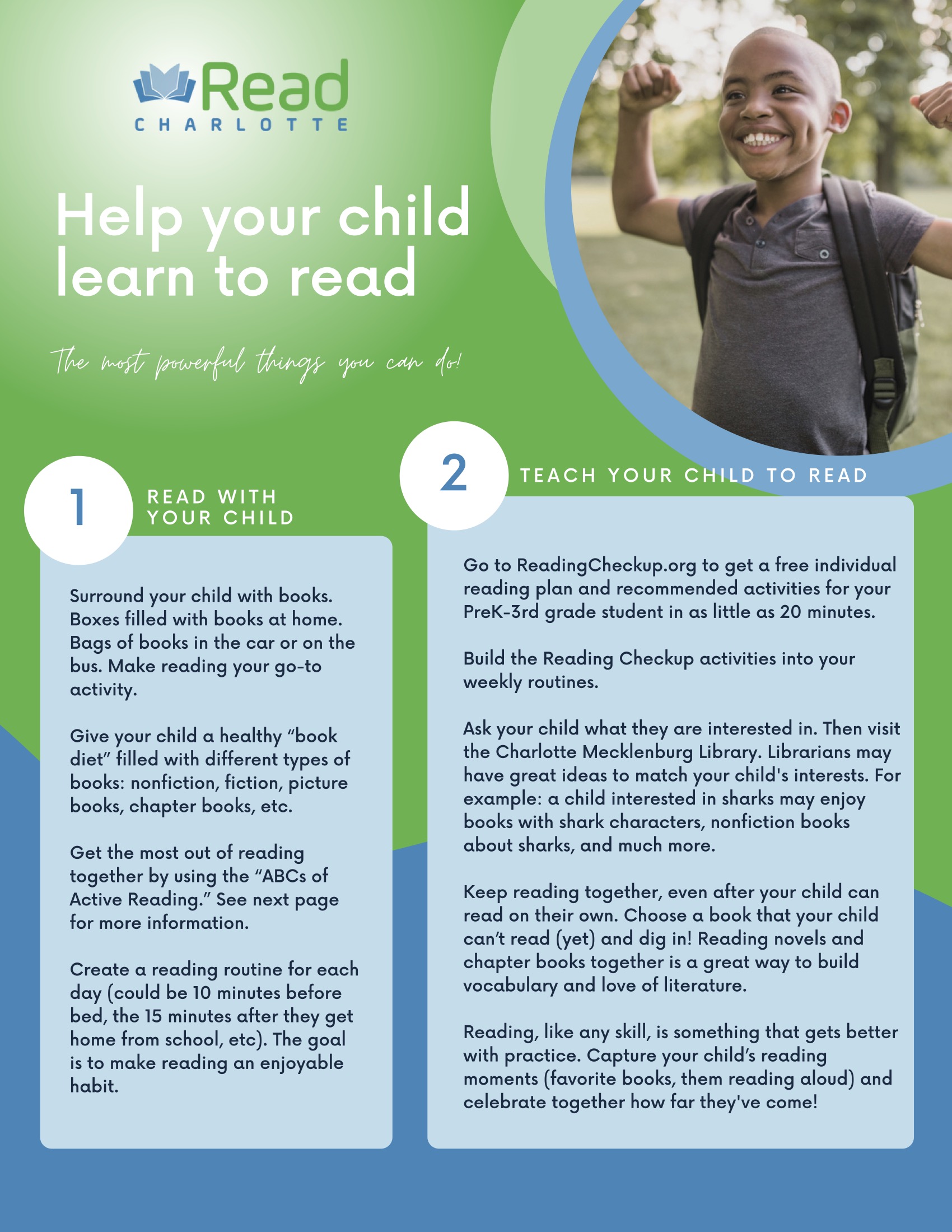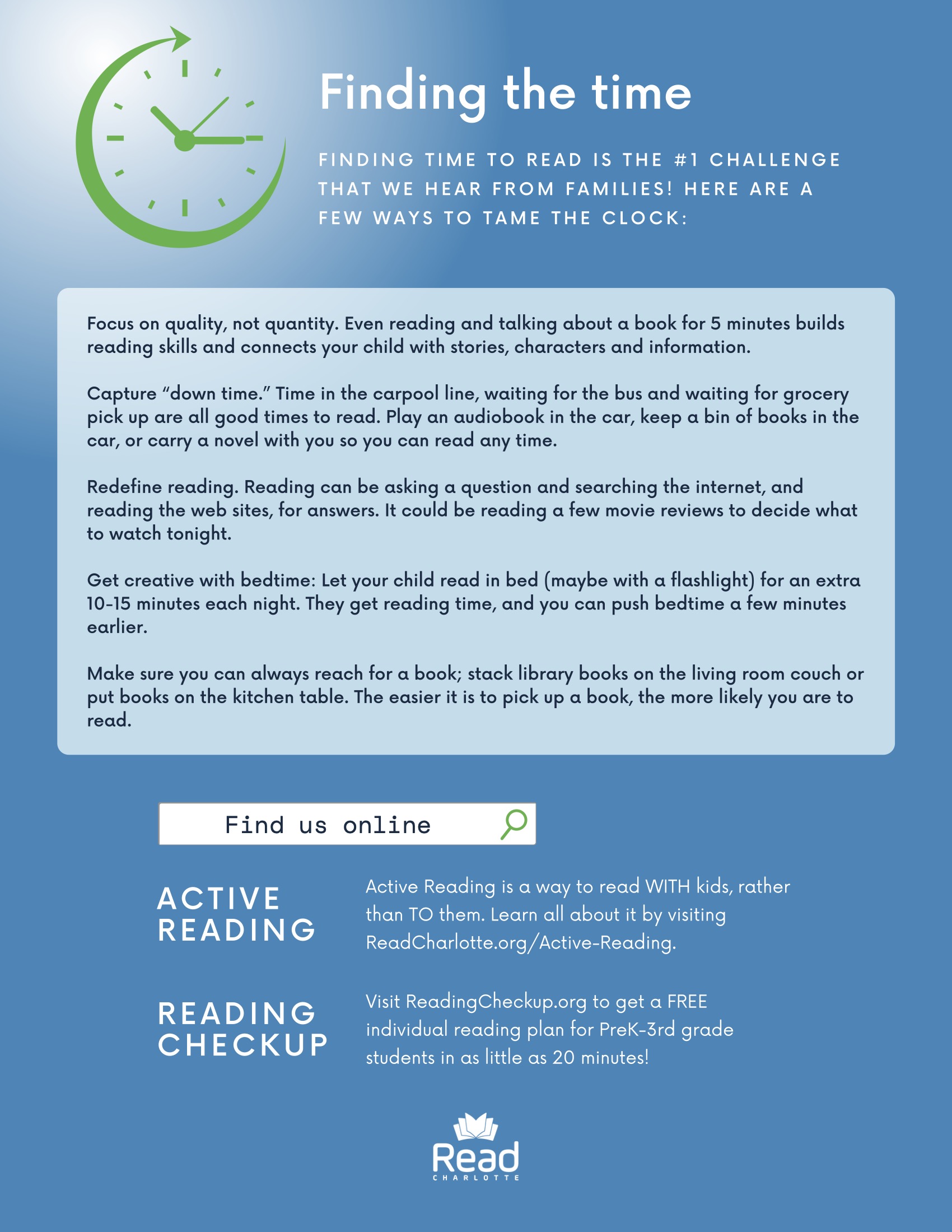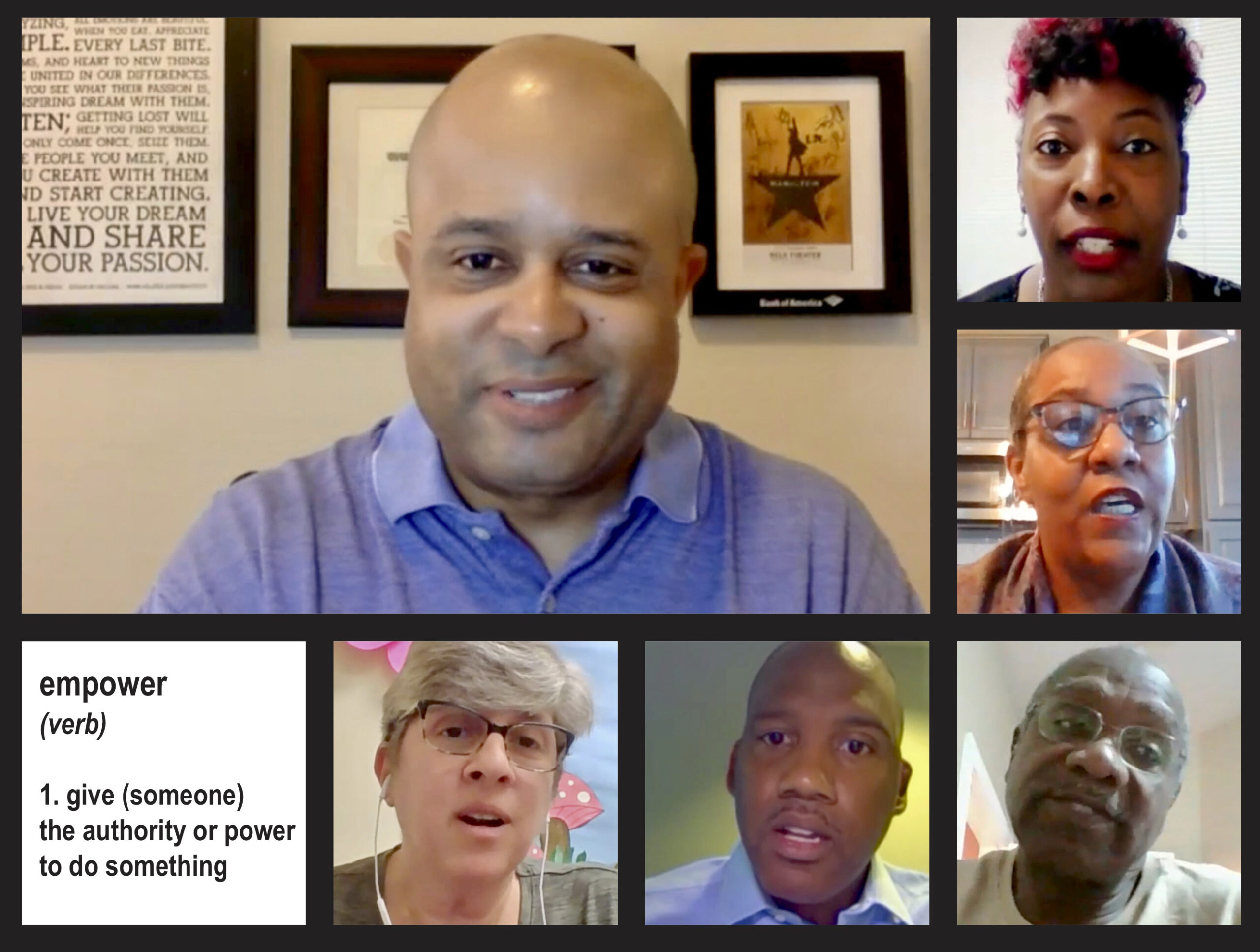
Sept. 21, 2021
To empower. Specifically, to empower parents, not just with rights, but with skills, to guide their children into the world of reading.
Dr. Munro Richardson, executive director of Read Charlotte, gathered together for today’s Forum a number of colleagues from area groups working with Read Charlotte. Together, they described how they are already showing parents how to use research-based quizzes and materials to determine the skills their primary-grades children need, and then to help their children learn those skills.
Former CMS Board Chair Arthur Griffin, not directly associated with the Read Charlotte effort, provided a bit of context. At one point he described a 1980s event for parents and children in the public housing project Belvedere Homes in which CMS teachers showed parents how eggs, a gallon of milk, canned goods and other contents of apartment refrigerators could be used to teach reading, math, weights and measures. How many are in the carton of a dozen eggs?
Richardson’s presentation displayed the unexpected results of spring 2021 testing at CMS. Everyone expected some reading scores to decline from 2019 levels, due to the disruptions during the COVID-19 pandemic and the limits of hybrid learning programs. What was unexpected, Richardson said, was how the declines affected all groups, and how the percentage declines were similarly large in all groups, and left no corner of Mecklenburg County unscathed.
Richardson’s message that the reading achievement gaps can be closed, and Griffin’s that similar work was under way 40 years ago, led facilitator Mary Johnson, herself a retired educator, to recall that as a child she never knew a Charlotte child who could not read. “What happened,” she asked Griffin, “that we have this reading crisis now?”
Griffin said he couldn’t catalog all the reasons, but offered that years ago “the schools were a lot closer to families, for whatever the reasons, than they are today…. All the indicators that people identify can be overcome if there is a relationship between that institution we call schools, and communities and families….”
The work of Read Charlotte and its partners might not only give students a boost, but might help rebuild some school-family relationships. Another project being launched elsewhere in North Carolina to address erosion of reading achievement involves direct tutoring of students.
On Sept. 28, the Forum will hear from Supt. Earnest Winston and others at CMS.
Richardson’s slides in a PDF file are here. A flier for the program is here. A Sept. 20 WFAE report on the Read Charlotte effort is online and in PDF here.
Below the video of today’s Forum are excerpts from the chat box; the slides Richardson used; and the flier noted above.
Excerpts from the chat box
Jennifer De La Jara: Thank you for mentioning the Charlotte Bilingual Preschool. I used to do this work there- family literacy – working with parents to give them literacy skills to encourage reading with their children, regardless of language.
Yvette Townsend-Ingram: Who do we contact for the training?
Sonya Castellino: Great question! Feel free to follow up w me, to schedule time to walk through what we have to offer: [email protected]
Karita Pimentel: The current President for the BCDI-Charlotte Affiliate is Dr. Devonya Govan-Hunt
Karen Gipson: Does Read Charlotte or your partners work with OurBridge For Kids? They work with immigrant children and families in East Charlotte.
Stephanie Klitsch: It seems like reading to children supports increasing background knowledge and vocabulary. How important is it for families to understand/teach word decoding skills?
Sonya Castellino: Re Family Reading Supports, send me an email to learn how to get your group started: [email protected]
Jackie Edwards Walton: Can Devonya Govan-Hunt & Susana Jerez put their contact info in the Chat?
Devonya Govan-Hunt: [email protected], 980-209-0415
Gia Paige: Also being able to communicate with families speaking different languages has been key when working with families from schools. We use a tool called TalkingPoints to increase our capacity to communicate which breaks down barriers and gives parents encouragement to work beyond any barriers that may be discouraging them.
Shenera Mackey:
Shenera Mackey: Yes, very important to help parents feel empowered. They then have the confidence to know they can educate their children…. Meeting them where they are. Regardless of their situation.
Sonya Castellino: https://talkingpts.org/families/
Pat Geary, Caterpillar Ministries: E2D for devices.
Lizzie Carson: TLC is in the Greir Heights neighborhood and we are hearing parents talk about door to door visits to check on children missing from school. Thank you!
Yvette Townsend-Ingram: How can we as leaders foster a village mentality whereby if I know of a parent unable or unwilling to receive that empowerment, we can reach other children?
Devonya Govan-Hunt: This is a wonderful opportunity for our faith partners to “do something different”. All of these new partnerships in the room. I look forward to learning how you incorporate the use of this tool in service with your families.
Gia Paige: I am currently researching volunteering and parent involvement in schools. Unfortunately research overwhelming indicates that marginalized parents/families do not feel welcome in schools….
We have to continue to break down that wall where parents feel like interlopers in schools.
Munro Richardson: Gia, check out this RCT study. One of the most promising experimental studies that I have seen. The full research paper found there were also positive spillover effects for other kids whose parents did not participate in family meetings with schools. Let me know if you’d like to talk further about this: https://www.povertyactionlab.org/publication/getting-parents-involved
Munro Richardson: We are taking this same approach and helping our partners scale it. Glad to hear we are following tried and true practices.
Yvette Townsend-Ingram: [email protected]
Gia Paige: Gia N. Paige, Sr. Project Director, Helps Education Fund [email protected] 980-368-2698
Shenera Mackey: It truly takes a village!
